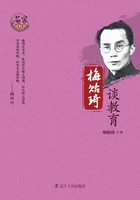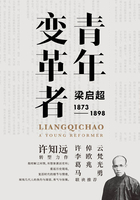As it sprang from times long anterior, if not to the invention,at all events to the popularisation, of the art of writing,gestures, symbolical acts, and solemn phrases take the place ofdocumentary forms, and a lengthy and intricate ceremonial isintended to call the attention of the parties to the importanceof the transaction, and to impress it on the memory of thewitnesses. The imperfection too of oral, as compared withwritten, testimony necessitates the multiplication of thewitnesses and assistants beyond what in later times would bereasonable or intelligible limits.
The Roman Mancipation required the presence first of all ofthe parties, the vendor and vendee, or we should perhaps rathersay, if we are to use modern legal language, the grantor andgrantee. There were also no less than five witnesses; and ananomalous personage, the Libripens, who brought with him a pairof scales to weigh the uncoined copper money of ancient Rome. TheTestament we are considering -- the Testament per aes et libram,"with the copper and the scales," as it long continued to betechnically called -- was an ordinary Mancipation with no changein the form and hardly any in words. The Testator was thegrantor; the five witnesses and the libripens were present; andthe place of grantee was taken by a person known technically asthe familiae emptor, the Purchaser of the Family. The ordinaryceremony of a Mancipation was then proceeded with. Certain formalgestures were made and sentences pronounced. The Emptor familiaesimulated the payment of a price by striking the scales with apiece of money, and finally the Testator ratified what had beendone in a set form of words called the "Nuncupatio" orpublication of the transaction, a phrase which, I need scarcelyremind the lawyer, has had a long history in Testamentaryjurisprudence. It is necessary to attend particularly to thecharacter of the person called familiae emptor. There is no doubtthat at first he was the Heir himself. The Testator conveyed tohim outright his whole "familia," that is, all the rights heenjoyed over and through the family; his property, his slaves,and all his ancestral privileges, together, on the other hand,with all his duties and obligations.
With these data before us, we are able to note severalremarkable points in which the Mancipatory Testament, as it maybe called, differed in its primitive form from a modern will. Asit amounted to a conveyance out-and-out of the Testator's estate,it was not revocable. There could be no new exercise of a powerwhich had been exhausted.
Again, it was not secret. The Familia Emptor, being himselfthe Heir, knew exactly what his rights were, and was aware thathe was irreversibly entitled to the inheritance; a knowledgewhich the violences inseparable from the best-ordered ancientsociety rendered extremely dangerous. But perhaps the mostsurprising consequence of this relation of Testaments toConveyances was the immediate vesting of the inheritance in theHeir. This has seemed so incredible to not a few civilians, thatthey have spoken of the Testator's estate as vestingconditionally on the Testator's death or as granted to him from atime uncertain, i.e. the death of the grantor. But down to thelatest period of Roman jurisprudence there was a certain class oftransactions which never admitted of being directly modified by acondition, or of being limited to or from a point of time. Intechnical language they did not admit conditio or dies.
Mancipation was one of them, and therefore, strange as it mayseem, we are forced to conclude that the primitive Roman Willtook effect at once, even though the Testator survived his act ofTestation. It is indeed likely that Roman citizens originallymade their Wills only in the article of death, and that aprovision for the continuance of the Family effected by a man inthe flower of life would take the form rather of an Adoption thanof a Will. Still we must believe that, if the Testator didrecover, he could only continue to govern his household by thesufferance of his Heir.
Two or three remarks should be made before I explain howthese inconveniences were remedied, and how Testaments came to beinvested with the characteristics now universally associated withthem. The Testament was not necessarily written: at first, itseems to have been invariably oral, and, even in later times, theinstrument declaratory of the bequests was only incidentallyconnected with the Will and formed no essential part of it. Itbore in fact exactly the same relation to the Testament, whichthe deed leading the uses bore to the Fines and Recoveries of oldEnglish law, or which the charter of feoffment bore to thefeoffment itself. Previously, indeed, to the Twelve Tables, nowriting would have been of the slightest use, for the Testatorhad no power of giving legacies, and the only persons who couldbe advantaged by a will were the Heir or Co-heirs. But theextreme generality of the clause in the Twelve Tables soonproduced the doctrine that the Heir must take the inheritanceburdened by any directions which the Testator might give him, orin other words, take it subject to legacies. Written testamentaryinstruments assumed thereupon a new value, as a security againstthe fraudulent refusal of the heir to satisfy the legatees; butto the last it was at the Testator's pleasure to rely exclusivelyon the testimony of the witnesses, and to declare by word ofmouth the legacies which the familiae emptor was commissioned topay.
The terms of the expression Emptor familiae demand notice.















